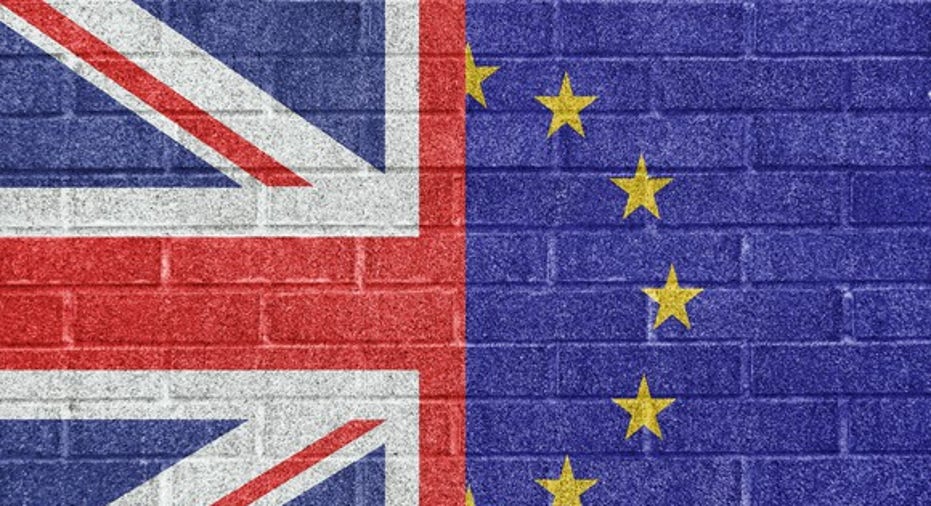Brexit Comes With Price Shock at Checkout

LONDON -- The U.K. is expected to kick off talks this month over how it will exit the European Union, a process that could take two years. But for many British shoppers, Brexit already means one thing: higher prices.
The sharp drop in the pound following Britain's June vote to leave the EU has boosted the cost of imported goods as well as British-made products containing foreign ingredients or parts. Some companies have resisted passing on those higher costs to consumers, or have been protected by currency hedges. But in the more than nine months since the vote, many others have been raising prices.
In November, Naked Wines, an online wine seller owned by Majestic Wine PLC, increased the prices for half of the wines it sells to U.K. customers by about 5%. The month before, consumer goods giant Unilever PLC raised prices on all of its products sold in the U.K., including Ben & Jerry's ice cream and the British spread Marmite, by 10%.
The pound was recently trading at about $1.21, a 19% decline since last June's Brexit vote.
PepsiCo Inc.-owned Walkers, which makes potato chips, also boosted prices by 10%, citing the weak pound. While Walkers' potatoes are British grown, other ingredients like oil, seasonings and packaging materials are imported. Heineken NV raised its beer prices in the U.K. by 3.6%.
Inflation in the U.K. accelerated to 1.8% in January from a year ago, up from 1.6% in December, marking the fastest rate of growth in prices since mid-2014, according to government statistics.
Inflation remains below the Bank of England's 2% target, and consumer prices have also been rising at an accelerating pace in other big economies -- for a host of reasons, including higher oil prices. But economists are bracing for further acceleration in the U.K. as the sharply higher cost of overseas supplies and ingredients continue to make its way through the supply chain. Prices for imported materials surged 20% in January from the year ago period, the highest rate since 2008.
At the same time, many companies that have hedged their currency risk in financial markets are starting to see those contracts expire. Dunelm Group PLC, which sells curtains, rugs and other home furnishings at 150 stores around the U.K., recently began raising prices for the first time in five years after its hedges started to expire in the current quarter, Chief Financial Officer Keith Down told investors last month.
Dulling some of the pain for now: British shoppers have enjoyed several years of falling prices thanks to competition and aggressive expansion by discount retailers. For these bargain chains, the price increases present a fresh opportunity. U.K. sales at German "deep-discount" grocer Aldi rose 13% over the 12 weeks ending Feb. 26 from a year earlier, according to consumer research firm Kantar Worldpanel. "Rising food price inflation is becoming a real concern for customers," said Matthew Barnes, head of Aldi U.K. and Ireland.
One of the sectors seeing the biggest price increases has been electronics, often made overseas, in Asia or the U.S.
Shalim Uddin, from the English village of Hampton in Arden, was planning to treat himself to new Sonos speakers and subwoofer for his birthday in April. But last month, Santa Barbara, Calif.-based Sonos raised the U.K. price of both pieces by GBP100, or about $121, to GBP699 each. Mr. Uddin, 35 years old, is holding off for now. "I'm at a point of stasis, waiting to see if there are any special offers," he said.
Holding prices amid the currency move was "unsustainable," a Sonos spokesman said.
In January, Apple Inc. raised prices on the apps it sells through its app store by 25% in the U.K. to 99 pence from 79 pence. Apple had increased prices of iPhones, iPads and MacBooks here last year. Dell Inc. has also raised prices, blaming the weaker pound. Apple and Dell representatives didn't respond to requests for comment.
Other companies are adopting different strategies. Frozen food maker Birds Eye, owned by Nomad Foods Ltd., has reduced the size of products like fish fingers and chicken nuggets in the U.K. Despite this, the company is "absorbing a significant proportion of the inflation," a spokesman said.
Write to Saabira Chaudhuri at saabira.chaudhuri@wsj.com



















